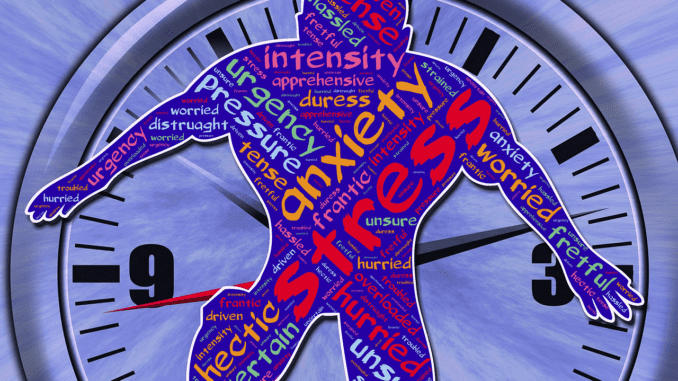
Life Changes, Stress and Anxiety
As a therapist specializing in anxiety here in Chicago, I’ve seen firsthand how major life changes can significantly impact mental health. Whether it’s a positive event like getting married or a challenging one like losing a job, life changes often come with a mixed bag of emotions.
Many people underestimate how even joyful changes can lead to stress and anxiety. Let’s dive into why this happens and what you can do to navigate these transitions more smoothly.
The Nature of Change
Change, by its very nature, can be unsettling. It disrupts our routines and challenges our sense of stability. As human beings, we crave predictability. When life throws a curveball, whether expected or not, it forces us to adapt, and this adaptation can be stressful.
For example, moving to a new city might be an exciting adventure, but it also involves leaving behind familiar surroundings, friends, and routines. The unknowns—finding new friends, learning new streets, adjusting to a different job—can stir up a lot of anxiety.
Similarly, starting a new job, while a positive step career-wise, can trigger worries about fitting in, meeting expectations, and navigating new responsibilities.
The Stress Response
When faced with major changes, our bodies often respond with the fight-or-flight mechanism. This response is a throwback to our evolutionary past when change often meant danger. While we’re no longer running from predators, our bodies still react to stressors as if they are threats.
This can result in physical symptoms like a racing heart, sweaty palms, or an upset stomach. Mentally, you might experience racing thoughts, difficulty concentrating, or a sense of impending doom.
These reactions are normal but can be overwhelming. The key is understanding that they are a natural response to perceived threats, even if those threats are just changes in your life situation.
Positive Changes Can Be Stressful Too
It’s important to acknowledge that even positive changes can be stressful. Getting married, having a baby, buying a house—these are all milestones that many people look forward to. However, they also come with their own set of challenges.
For instance, planning a wedding involves financial decisions, family dynamics, and logistical planning, all of which can be stress-inducing.
Expecting a baby brings about concerns regarding parenting skills, financial stability, and changes in your relationship dynamics. Buying a house involves legalities, moving logistics, and financial pressures.
The joy of these events often coexists with significant stress and anxiety, and that’s perfectly normal. See our Chicago stress management counseling page to learn more.
Strategies to Manage Stress and Anxiety
So, how can you manage the stress and anxiety that come with major life changes? Here are some strategies that I recommend to my clients:
- Acknowledge Your Feelings: The first step is to recognize that it’s okay to feel stressed or anxious. Denying or suppressing these emotions can make them more intense. Give yourself permission to feel and process these emotions.
- Maintain Routines: Keeping some aspects of your routine intact can provide a sense of normalcy. Regular exercise, healthy eating, and sufficient sleep can help your body manage stress better.
- Break It Down: Major changes often involve numerous smaller tasks. Breaking these down into manageable steps can make the overall change feel less overwhelming. Create a checklist and tackle one thing at a time.
- Seek Support: Talk to friends, family, or a therapist about what you’re going through. Sharing your worries can provide relief and sometimes solutions you hadn’t considered. Support groups, either in person or online, can also be beneficial.
- Practice Mindfulness: Mindfulness techniques, such as meditation and deep breathing exercises, can help you stay grounded. These practices teach you to focus on the present moment, reducing the tendency to worry about the future.
- Set Realistic Expectations: Understand that it’s normal for things to not go perfectly. Set realistic expectations for yourself and others. Perfection is often an unrealistic goal that can increase stress levels.
- Stay Flexible: Life is unpredictable, and being adaptable can help you manage changes more effectively. Developing a flexible mindset allows you to go with the flow rather than resist change.
When to Seek Professional Help
If you find that stress and anxiety are significantly interfering with your daily life, it might be time to seek professional help. Therapy can provide you with tools to manage your anxiety and navigate life changes more effectively. As a therapist in Chicago, I specialize in helping people understand their anxiety and develop coping strategies tailored to their unique situations.
Wrap Up
Major life changes, whether positive or negative, can indeed cause stress and anxiety. Understanding this is the first step toward managing these emotions. By acknowledging your feelings, maintaining routines, seeking support, practicing mindfulness, setting realistic expectations, and staying flexible, you can navigate these transitions more smoothly.
Remember, it’s okay to seek help when you need it. Life changes are a part of our journey, and with the right strategies, we can manage the accompanying stress and anxiety effectively.
